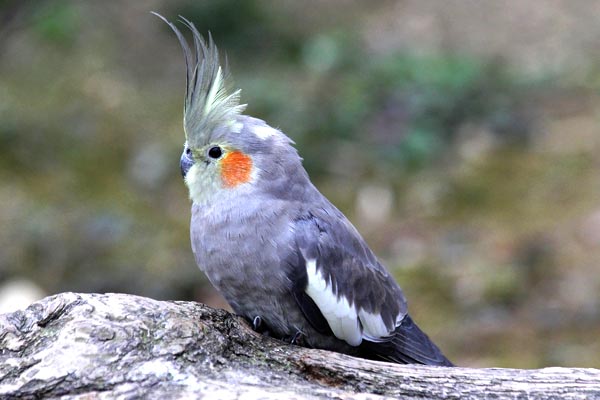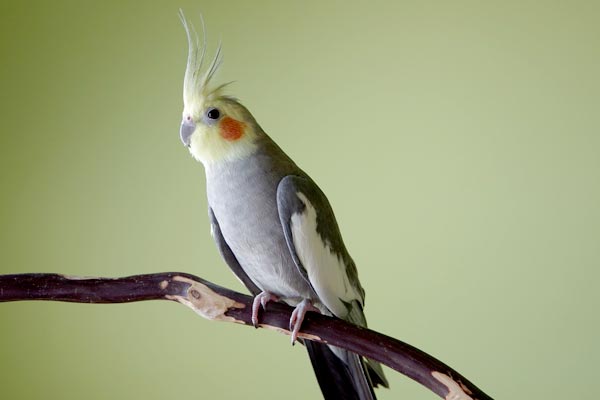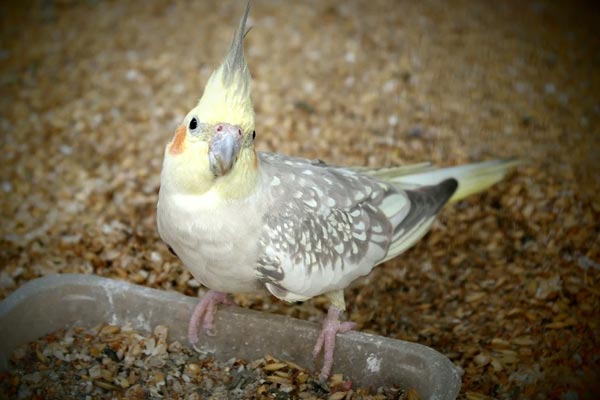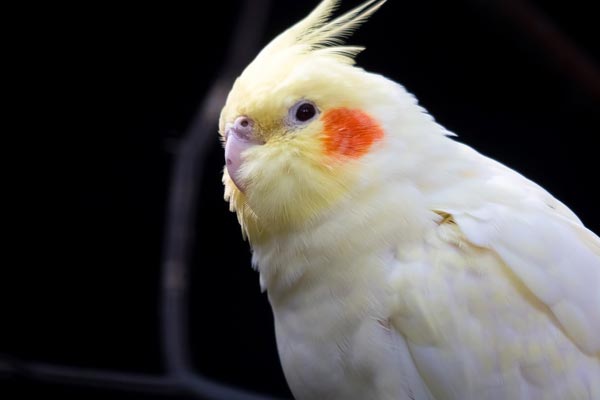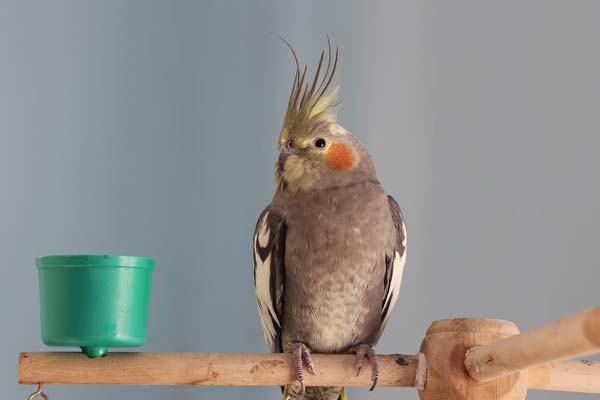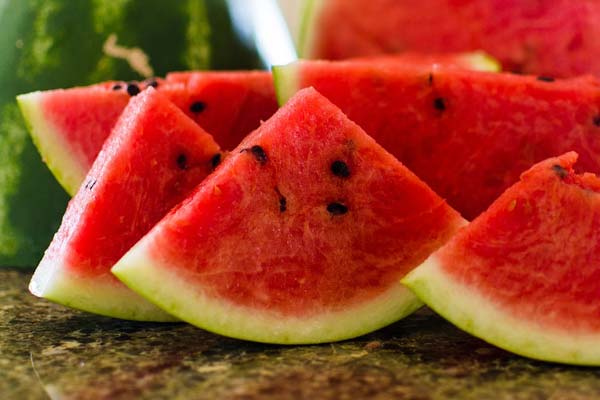How Long Does a Cockatiel Live: Why Cockatiel Life Expectancy Is a Moving Target
The cockatiel lifespan is more of a range than an exact number. This makes estimating how long a cockatiel will live much more difficult than for other common pet species such as dogs and cats.
How long does a cockatiel live? Does this number differ depending on whether the cockatiel is wild or tame, male or female?
Read on to learn valuable facts about how long cockatiels typically live and tips to extend your bird’s lifespan.
How Long Does a Cockatiel Live
As PetMD reports, the typical age range for a cockatiel is anywhere from 15 to 25 years old.
However, cockatiels have been reported to live into their mid-30’s, as this popular avian owners forum demonstrates.
Learn Basic Facts About Cockatiels and Longevity
This short, interesting YouTube video is filled with facts about cockatiels, including their life expectancy range.
What Matters Most When Estimating Cockatiel Lifespan
In the case of most dog and cat breeds, experienced breeders and owners can usually narrow down the typical life expectancy to a handful of years.
So why does the pet cockatiel have a life expectancy range of 10 to 15 years difference from one bird to the next?
Is there something you can do to help ensure your cockatiel lives the longest and healthiest possible life?
The good news is, the answer here is “yes.” We will discuss each of the major factors that are thought to influence cockatiel longevity the most.
Cockatiel genetics
Cockatiels, like many dogs and cat breeds, are bred in a variety of colors (commonly called “mutations”).
Whenever a breeder is trying to achieve a specific color or color pattern, there may be a risk of inbreeding as the breeder crosses related birds to try to stabilize the desired look.
As the Talk Cockatiels owner forum explains, over time, this may produce less genetic diversity or even cause less desirable genes to get passed along.
For general purposes, cockatiels that have natural wild coloration are often said to be the hardiest and the longest-lived.
Cockatiel gender
Cockatiel females, like female chickens, can and do lay non-fertile eggs in adulthood even when housed alone.
As VCA Animal Hospital explains, the females of small bird species such as cockatiels are more at risk of complications from egg binding.
An egg-bound female cockatiel can die in as little as a few hours. The trapped egg can place pressure on the circulatory system, the gastrointestinal tract, and the respiratory system.
The bird may not be able to breathe easily, eliminate waste or remove toxins from the body until the egg-binding is treated.
Egg-binding is one of the leading causes of early death in female cockatiels.
Cockatiel diet
A poor diet has been implicated both in death from egg-binding and in early mortality overall.
Cockatiels that are fed a seed-based diet do not get the full complement of nutrients, vitamins, and minerals they need to stay healthy.
Wild cockatiels eat a far more varied diet of grasses, herbs, berries, fruits, and also seeds, and nuts. In captivity, owners often opt for an easier complete, and balanced cockatiel pelleted diet.
Cockatiels also need to drink plenty of fresh water daily to stay healthy and maintain proper elimination.
Cockatiels should not be fed “people” food or processed food of any kind. These types of treats can result in another major cause of early mortality, fatty liver disease.
Cockatiel daily routine
Cockatiels in a wild setting are active, social birds who spend all day, every day foraging for food, preening, chewing on twigs and leaves (which keeps their beaks and nails trimmed and sharp), socializing, and raising chicks.
As Animal Diversity points out, in the wild, cockatiels will mate for life and remain together even after breeding season ends.
Pet cockatiels need lots of daily enrichment, play, and activity to stay strong and healthy in body and mind and meet that need for a close and loving bond.
Pet cockatiels are capable of bonding very closely with their human keepers and with others of their species even outside of the mating pair. These bonds are very important for keeping stress low and immune response strong.
A cockatiel that is ignored, neglected, or given only minimal care is unlikely to realize the full life expectancy.
Cockatiel sleep
Cockatiels are very susceptible to night frights, which are a type of sudden awakening that cause them great physical harm or even death.
Night frights can easily cause a cockatiel to break a blood feather and bleed out or even sustain internal damage.
The quieter, draft-free, dark, and controlled a cockatiel’s sleep area is, the more sleep the bird will get and the healthier they are likely to remain.
Pet Cockatiels Have a Chance to Outlive Wild Cockatiels
As Singing Wings Aviary explains, one captive cockatiel actually lived for 36 years!
As far as we know, no wild cockatiel has ever been reported as living that long. So living the pet life can potentially help a cockatiel to live longer.
Without the threat of daily predation or the need to forage for food for every meal, a pet cockatiel can escape some of the chronic stress that accompanies life in the wild. This in turn may have an immune-boosting effect.
So you could think of an enhanced life expectancy as one of the perks of living in captivity.
How to Help Your Pet Cockatiel Live As Long As Possible
There are several things you can do to give your pet cockatiel a chance to live as long as possible – perhaps even into the 30s.
Regular preventative veterinary care
As Cockatiel Cottage points out, even having a very close bond with your pet cockatiel cannot guarantee your bird will show you when they don’t feel well.
Nearly all animal species, including domestic dogs and cats, will try their best to hide any sign of illness or weakness.
Cockatiels are no exception. This means that by the time you actually see signs that your bird is ill, it may be a very serious problem.
The best way to make sure your cockatiel stays healthy is to schedule regular preventative veterinary care check-ups – at least once per year.
Choose a varied diet for your cockatiel
In addition to a constant source of clean, freshwater, you should feed your cockatiel a complete and balanced pelleted diet for the best nutrition.
For treats and enrichment, you should give your cockatiel the chance to browse freely among a variety of fresh greens and fruits for extra nutrients.
Make sure your cockatiel gets restful sleep
Sleep serves a similar protective and restorative function for birds as it does for people. Cockatiels need 10 to 12 hours of sleep every single day to stay healthy.
Be sure your cockatiel has a quiet, draft-free, dark, and calming place to sleep at night.
Give your cockatiel plenty of love and attention and fun
Cockatiels are smart birds that need and crave connection with their owners.
If you can spend a lot of time with your cockatiel every day, it is not necessary to provide a second cockatiel. However, if you are out of the home for hours most days, your lonely bird will appreciate a friend.
Also, provide toys and bird-safe materials to gnaw and chew on to help your bird keep their beak healthy.

